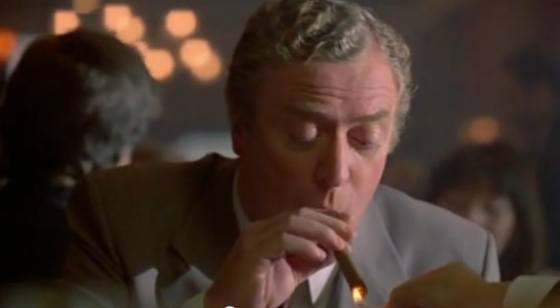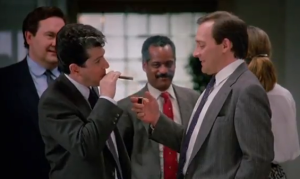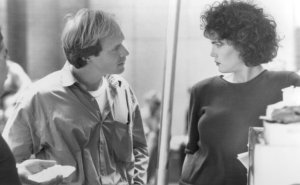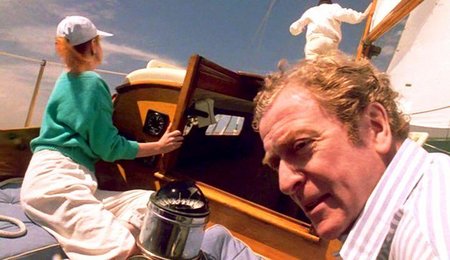Jay thinks I let things get out of hand, you decide.
Strother Martin Film Project
▼
Saturday, September 29, 2018
Friday, September 28, 2018
The Predator
Catching up with the film that will cap off the Franchise look back on the next Lambcast. These films have a varying array of quality and entertainment value, but we will be discussing rankings and the other movies on the show. For that you have to download next week. Right now it's time to take this Shane Black directed episode and turn it inside out. Or rather, I'm going to yank it's spinal cord out, hold it up for examination and then display the results here as a trophy.
"The Predator" is basically a stand alone film that aims to create a continuing story line. The events of earlier films are only marginally referred to. If you had not seen any of the other films you could easily slip into this one and have a perfectly fine time, at least for the first two thirds of the movie. The final act has some issues but I will get to those in a minute. Basically, one of the Predator species has escaped a band of fellow Predators who are in some way different, and crashed on Earth with a Macguffin that ends up in the hands of a wet ops Army Sniper. He in turn, passes the material to a P.O. box but of course, it ends up in the basement of his house where his autistic ten year old son begins to discover the secrets of alien weaponry.
The set up is the start of the weaknesses of this film. This is so much more complicated than any of the other films which are almost entirely focused on the confrontation between men as prey and aliens as their hunters. This movie is a political pamphlet on Predator evolution and genetic manipulation. Oh, and just to insure that it is contemporary, Black and his co-author have included the most worn out trope in modern science fiction. That's right, Global warming is what precipitates all of the mayhem. So in addition to bullying, PTSD, drug wars, and Asperger's syndrome, we have the specter of climate change as a boogeyman to accompany our alien hunters. You would think those would be enough antagonists to keep the story going, but wait, the secret military intelligence unit charged with discovering the alien technology is also an evil organization that randomly kills people that they perceive as a threat.
Although the plot is quite convoluted, it is set up with reasonable efficiency in the opening act, and the main characters are all introduced. A psychotic A-Team is drafted to try to save the little boy and hopefully end the current threat. The characters in this group all have unique quirks, designed to make them sympathetic or humorous. Thomas Jane and Keegan-Michael Key get the lion's share of jokes while Trevante Rhodes gets all the personality that tough guy lead Boyd Holbrook lacks. Olivia Munn is a biologist who goes from being a critical part of the investigation of the Predator aliens, to a nuisance targeted for elimination for no reason what so ever. Sterling K. Brown heads up the secret team and he twirls his mustache just fine, with a sense of entitled superiority that is never justified by his cleverness as a character. The chase by the escaped Predator, with the team coming together over bad jokes and ass kicking, makes up the most entertaining part of the movie. However, once the trailing eleven foot Predator shows up, the movie becomes something less effective than most of it's predecessors. Translating alien language so that the Predators communicate is a mistake. The mano a mano showdown featuring CGI effects, gets a little tiresome, and the plot line gets completely screwed by the resolution.
I enjoyed this movie while I was watching it, but it also irritated me with the dumb choices that it makes about character and story. If the whole point of the movie is correctly identified at the end of the film, than the middle third makes no sense. The opportunity to create a united front against the Predators is squandered by the usual government conspiracy mistakes. The element that makes young Jacob Trembly's character important, is largely shunted aside and turned into a device to create short cuts in the story rather than enlarge the story as it should have. The climactic battle on the alien ship looks like it was added to make the movie feel "big" and it is something of a snooze. It's the individual confrontations that work, unfortunately they are not very consistent.
Saturday, September 15, 2018
Movies I Want Everyone to See: A Shock to the System
[This article originally appeared on the Defunct Web Site "Fogs Movie Reviews", in the Fall of 2013]
To be fair, I'm about to cheat a little bit because no matter how long this commentary runs, the reason to see this film ultimately comes down to two words "Michael Caine".
This film is not long, it's not complicated but it is clever and it features an actor that may well be in a third of the movies I plan on writing about. "A Shock to the System" is a bit like "American Psycho" without the lurid blood and the guessing game over what is real. The stories both take place in the same setting, the New York corporate world. They center around career climbing lead characters and each leads a double life. "A Shock to the System" is the more traditional film but that does not mean it lacks some surprises or a wicked sense of humor.
Caine plays Graham Marshall, a middle aged executive at a large advertising agency on Madison Avenue. His lifeforce has settled into an existence that marginalizes him at home and makes his career goals modest given the times. He and his wife have always counted on his uncanny ability to reach out and get what they want, but Graham feels that his magic is diminishing. When he ends up being passed over for the job that everyone including himself thought was his, a sinister form of the magic he once had takes over and he is determined not to end up disappointed again.
The film is very sharp in observing the interpersonal power dynamics of the executives in the company. As Graham was rising, he was catered to by his colleagues and respected by the office staff. One of the clearest indicators of status in the company is the lighting of a cigar.

Grahams boss, who is being moved out into forced retirement, and held the position that Graham thought would be his, had given Graham a lighter many years earlier, so he knew he would always have someone to give him a light. Just as Graham thinks he is to step into the exulted position, the executives below him confirm that status by performing the same task for him. The lighting of a cigar becomes a ritual like bowing in Japan, one that has nuance and meaning that is unspoken but clearly there. Once the dream comes crashing down, it doesn't take long for the pack to recognize a new alpha in the form of the younger Robert Benham, played by Peter Riegert.
 Having
leaped over his former superior, Benham does not take long to
consolidate his position by reducing Graham's stature in very obvious
ways. Each slight seems designed to bring Graham to the point of
insubordination, which is where he could then be fired. It is as this
process begins to build that Caine's character chooses to try the dark
version of his quickly vanishing mojo.
Having
leaped over his former superior, Benham does not take long to
consolidate his position by reducing Graham's stature in very obvious
ways. Each slight seems designed to bring Graham to the point of
insubordination, which is where he could then be fired. It is as this
process begins to build that Caine's character chooses to try the dark
version of his quickly vanishing mojo.Internalized narration of a lead character is a tricky thing to pull off. In a movie, where it is all about "showing ", narration runs counter to the strength of film art by "telling". The voice of the lead character in narration is often an indicator of the weakness of a film makers story telling skills. In this case however, the narration is cleverly timed and the phrasing is spoken in such a way as to reveal the self image of the character. We know what his presenting self is, the narration tells us his perceived self and it is fascinating. Graham had seen himself as a sorcerer, able to work magic on others to solve his problems. The loss of the promotion becomes the catalyst to redefine the characters in his life and to begin to cast new spells. We hear him decide that his wife is a witch, who has dampened his ability. The calculated way he proceeds is chilling but also humorous. At each moment he has chosen to execute one of his devious plans, he waves his fingers as if he where a magician, making a spell fly out of the ends of his digits to perform his will.
 Of
course it isn't magic, it is murder. The plans he hatches are relatively
simple but like a Columbo mystery, he carefully sets up an alibi to
cover his culpability. The giggle he lets out when he makes a pun over
one of the deaths reveals his new cold blooded nature. As wrong as it
might be, the audience is likely to identify with him and enjoy his
success and worry about his mistakes along the way. Caine has a great
time demonstrating his power to contain his true nature but he does let
the mask slip occasionally and we are treated to a couple of those great
rants that Caine is capable of delivering with gusto. His bitterness
and righteous indignation get released on a coworker and his new boss
and they are scenes that will make us all remember how tart the human
voice can be.
Of
course it isn't magic, it is murder. The plans he hatches are relatively
simple but like a Columbo mystery, he carefully sets up an alibi to
cover his culpability. The giggle he lets out when he makes a pun over
one of the deaths reveals his new cold blooded nature. As wrong as it
might be, the audience is likely to identify with him and enjoy his
success and worry about his mistakes along the way. Caine has a great
time demonstrating his power to contain his true nature but he does let
the mask slip occasionally and we are treated to a couple of those great
rants that Caine is capable of delivering with gusto. His bitterness
and righteous indignation get released on a coworker and his new boss
and they are scenes that will make us all remember how tart the human
voice can be. Graham sees himself as a sorcerer and he takes an
apprentice in the form of lovely and smart underling Stella Anderson.
Elizabeth McGovern plays Stella as a confident working professional who
suddenly begins to see who her boss and new lover really is. The
detective investigating the deaths of those close to Graham seeks to
turn her against him and the last act entails the consequences. The
main weakness of the film is the trail that feckless police Lt. Laker
follows to try and pin the deaths on Graham. The absence of dust on a
piece of electrical tape is enough to raise the hair on the back of his
neck. Will Patton is not responsible for the script he is following, but
he looks lost despite his supposed cleverness. The key piece of
evidence that might implicate Graham comes up in the Lt.'s radar for no
discernible reason. It is never clear why a car rental by another
character would ever be looked at by the police. To be fair, this movie
is a social satire not a police procedural, but that one element does
detract from the otherwise excellent script by Andrew Klaven from the
book by Simon Brett. I have not read the novel but it apparently ends
quite differently than the film so Mr. Klaven deserves credit for the
biting sting of the last couple of moments in the movie.
Graham sees himself as a sorcerer and he takes an
apprentice in the form of lovely and smart underling Stella Anderson.
Elizabeth McGovern plays Stella as a confident working professional who
suddenly begins to see who her boss and new lover really is. The
detective investigating the deaths of those close to Graham seeks to
turn her against him and the last act entails the consequences. The
main weakness of the film is the trail that feckless police Lt. Laker
follows to try and pin the deaths on Graham. The absence of dust on a
piece of electrical tape is enough to raise the hair on the back of his
neck. Will Patton is not responsible for the script he is following, but
he looks lost despite his supposed cleverness. The key piece of
evidence that might implicate Graham comes up in the Lt.'s radar for no
discernible reason. It is never clear why a car rental by another
character would ever be looked at by the police. To be fair, this movie
is a social satire not a police procedural, but that one element does
detract from the otherwise excellent script by Andrew Klaven from the
book by Simon Brett. I have not read the novel but it apparently ends
quite differently than the film so Mr. Klaven deserves credit for the
biting sting of the last couple of moments in the movie. Everyone
does a fine job in this film but the movie probably feels a little small
because it is limited in violent incidents and builds so slowly.
Riegert plays the kind of insolent know-it-all his character in "Animal
House" might have grown up to be if he were ambitious. McGovern ends up
sad after starting off so sexy and confident. Stella turns into another
victim of Grahams magic and the effect is disturbing. As I watched the
credits, I saw the name of Samuel L. Jackson but I did not notice him
in the film. When I scrolled back, he had about two seconds of screen
time as a three card Monte hustler on the N.Y. City sidewalks. This had
to be one of his earliest roles in films. It turns out this is one of
seven films the prolific Mr. Jackson appeared in during the year 1990.
Ultimately, no one else is going to be remembered for this film except
Michael Caine. He has often played bad men but this time he seems to
relish the role so much more. If you are a fan, and have not seen this,
it is not just a movie I want you to see, it is a Movie You Have to See.
Everyone
does a fine job in this film but the movie probably feels a little small
because it is limited in violent incidents and builds so slowly.
Riegert plays the kind of insolent know-it-all his character in "Animal
House" might have grown up to be if he were ambitious. McGovern ends up
sad after starting off so sexy and confident. Stella turns into another
victim of Grahams magic and the effect is disturbing. As I watched the
credits, I saw the name of Samuel L. Jackson but I did not notice him
in the film. When I scrolled back, he had about two seconds of screen
time as a three card Monte hustler on the N.Y. City sidewalks. This had
to be one of his earliest roles in films. It turns out this is one of
seven films the prolific Mr. Jackson appeared in during the year 1990.
Ultimately, no one else is going to be remembered for this film except
Michael Caine. He has often played bad men but this time he seems to
relish the role so much more. If you are a fan, and have not seen this,
it is not just a movie I want you to see, it is a Movie You Have to See.Richard Kirkham is a lifelong movie enthusiast from Southern California. While embracing all genres of film making, he is especially moved to write about and share his memories of movies from his formative years, the glorious 1970s. His personal blog, featuring current film reviews as well as his Summers of the 1970s movie project, can be found at Kirkham A Movie A Day.
Showgirls MOTM on the Lambcast #443
I did my duty and helped wrangle this show. The Vern actually hosted, but Jay said I had to go it alone as the Co-host. Still it was fun.
Sunday, September 9, 2018
Burt Reynolds Films on KAMAD
Rest in Peace Burt.
 |
Amanda's Review |
 |
| TCMFF Coverage |





